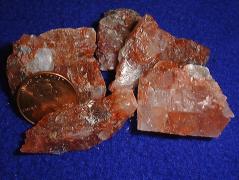Potash Producers Must Face Buyers’ U.S. Antitrust Lawsuit
Potash Producers Must Face Buyers’ U.S. Antitrust Lawsuit
June 27, 2012
Potash Corp. (POT)of Saskatchewan Inc.and six other producers of the fertilizer must face an antitrust lawsuit by buyers, a U.S. appeals court said in reversing an earlier ruling in the same court.
The U.S. Court of Appeals in Chicago, in a so-called en banc re-hearing by its judges, set aside a Sept. 23 ruling dismissing the case by a panel of three of its members. Today’s decision upholds a lower-court decision denying the producers’request to have the case thrown out.
“This is not a house-that-Jack-built situation in which action in a foreign country filters through many layers and finally causes a few ripples in the U.S.,” the court said today in its 32-page decision. “To the contrary: foreign sellers allegedly created a cartel, took steps outside the U.S. to drive the price up of a product that is wanted in the U.S.”
Potash buyers sued in 2008, claiming violations of the U.S. Foreign Trade Antitrust Improvements Act, which can extend the reach of American antitrust law to foreign anticompetitive conduct that affects U.S. imports.
“Markets are increasingly global, and today’s decision helps ensure that U.S. antitrust law and U.S. courts will protect U.S. purchasers who are targeted and injured by global cartels,” W. Joseph Bruckner, a Minneapolis-based attorney for the plaintiffs, said in a statement.
Resist Drought
The defendants are seven potash producers, including Calgary-based Agrium Inc. (AGU), Plymouth, Minnesota-based Mosaic Co. (MOS)and Russian and Belorussian companies. Potash is a form of potassium used by farmers to strengthen roots and help plants resist drought.
Bill Johnson, a spokesman for Saskatoon-based Potash Corp., declined to comment on the ruling. Richard Downey, a spokesman for Agrium, didn’t immediately return phone and e-mail messages seeking comment on the ruling. Rob Litts, a spokesman for Mosaic, didn’t immediately return a call seeking comment.
The appeals court panel in September ruled in favor of the producers, saying the plaintiffs had failed to state a plausible direct link between the allegedly anti-competitive activity and the U.S. market.
The complaint describes a “tight-knit global cartel” that restrained output of potash so that prices would remain artificially high, the appeals court said in today’s ruling.
“The alleged effect was substantial,” the appeals court said. “The inference from these allegations is not just plausible but compelling that the cartel meant to, and did in fact, keep prices artificially high in the U.S.”
The case is Minn-Chem Inc. v. Agrium Inc. (AGU), 10-1712, U.S. Court of Appeals for the Seventh Circuit (Chicago).
